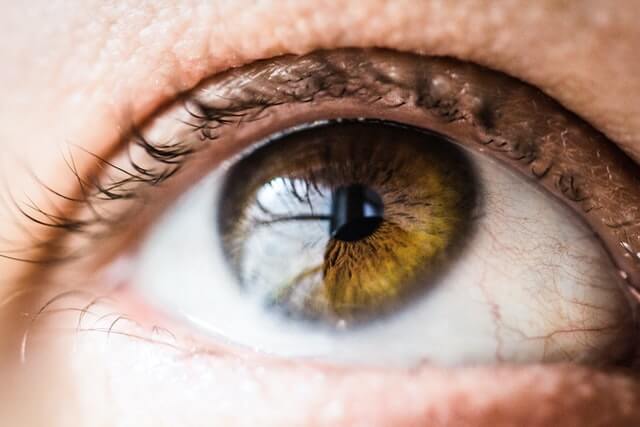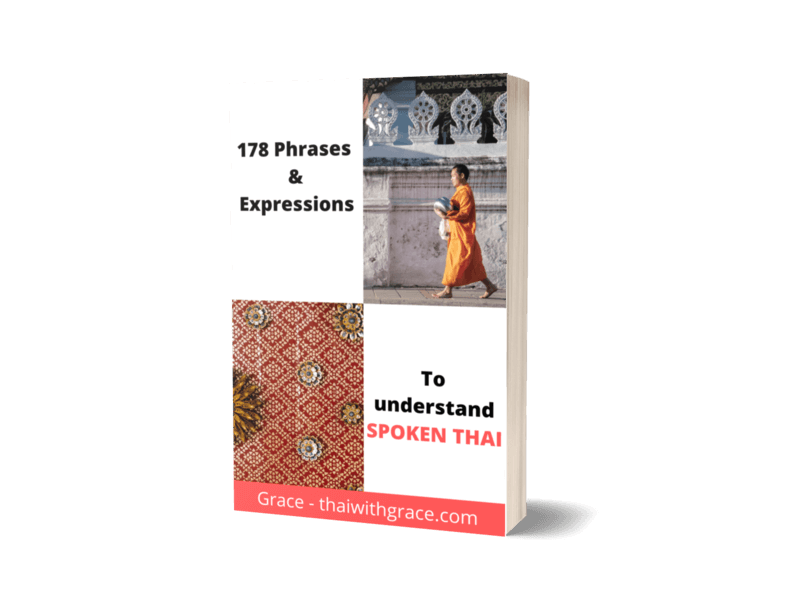There are few words when it comes to watch and to look in Thai. Which one is used depends a lot on where you live in Thailand. For myself who was born and live in Bangkok, I use ดู doo most often but there are more variations that I will explain.
I will also explain the words for observing and staring in Thai.
To look, to watch
1. ดู doo
The first word for to look or to watch in Thai is ดู.
Examples:
- Let’s go watch boxing today
วันนี้ไปดูมวยกัน
wan née bpai doo muay gan - I like to watch TV channel 7 on Saturday.
ฉันชอบดูทีวีช่อง 7 วันเสาร์
chăn chôp doo tee wee chông jèt wan săo
2. มอง mong
Another word meaning to watch or to look in Thai is มอง mong. มอง is interchangeable with ดู doo.
Examples:
- I like to look at the sunset
ฉันชอบมองดวงอาทิตย์ตก
chăn chôp mong duang aa-tít dtòk - What are you looking at, are you looking for trouble?
มองอะไรวะ หาเรื่องหรือ
mong à-rai wá hăa rêuang rĕu
3. มองดู mong doo
มองดู mong doo is a double word (คำคู่ kam kôo) formed with มอง mong and ดู doo. In Thai double words always give a deeper meaning. You do not need to use double words at all but if you use it, the feeling portrayed is fuller and deeper. It feels like there’s more emphasis. I like to tell my student to use a double word when telling a story.
Examples:
- A man is standing and looking at the moon
ผู้ชายคนหนึ่งกำลังยืนมองดูดวงจันทร์
pôo-chaai-kon-nèung gam-lang yeun mong doo duang jan - Even though mom is not here anymore, but I know that she is looking at me.
แม้แต่ว่าแม่จะไม่อยู่กับฉันแล้ว แต่ฉันก็รู้ว่าแม่กำลังมองดูฉันอยู่
máe dtàe wâa mâe jà mâi yòo gàp chăn láew dtàe chăn gôr róo wâa mâe gam-lang mong doo chăn yòo
4. แล lae, ส่อง sòng
These two words mean exactly the same as ดู doo. It’s more of a different dialect word choice. My brother’s girlfriend’s family is from the southern part of Thailand and I hear them say ส่อง sòng when talking about looking. However, I suggest sticking with the first 3 but just recognize that these exist too.
Examples:
- It’s there, look carefully
นั่นไงอยู่ตรงนั้น ส่องดูดีๆ
nân ngai yòo dtrong nán sòng doo dee dee - Go up the mountain to watch birds and trees.
ขึ้นเขาไปแลดูนกดูไม้
kêun kăo bpai lae doo nók doo mái

To see: เห็น hĕn
Just like in English, you can look but doesn’t mean that you can see. To see and to look (or watch) is different.
Example:
- you can look but doesn’t mean that you can see.
คุณมองได้แต่อาจจะไม่ได้หมายความว่าจะมองเห็น
kun mong dâai dtàe àat jà mâi dâai măai kwaam wâa jà mong hĕn - It’s there, can you see?
อยู่นั่นไงมองเห็นไหม?
yòo nân ngai mong hĕn măi - A) Why didn’t you look carefully?!!
ทำไมเธอไม่มองให้ดี!
tam-mai ter mâi mong hâi dee
B) I already lookED but I couldn’t/didn’t see!
มองแล้วแต่ไม่เห็น
mong láew dtàe mâi hĕn
Some variations of Double Words with เห็น hĕn are มองเห็น ดูเห็น แลเห็น ส่องเห็น (mong hĕn · doo hĕn · lae hĕn · sòng hĕn)
To stare: จ้อง jông
To stare means to fix your eyes upon something in an intense way. จ้อง jông (double words: จ้องมอง jông mong. จ้องดู jông doo) is the exact translation of to stare. Let’s take a look at some examples.
Examples:
- Don’t stare at me, I’m shy
อย่าจ้องสิ ฉันอายแล้วนะ
yàa jông sì chăn aai láew ná - What are you staring at?
จ้องมองอะไรอยู่
jông mong à-rai yòo
To observe, to notice : สังเกต săng-gàyt
This word can have two translations in English. The first example is observe. The second example is to notice. Please see the examples below.
Examples:
- A while ago I looked already but didn’t see. Probably because I didn’t observe carefully.
เมื่อกี้ฉันมองแล้วนะ แต่ไม่เห็นเลย น่าจะเป็นเพราะฉันไม่สังเกตให้ดี
mêua-gêe chăn mong láew ná dtàe mâi hĕn loie nâa jà bpen prór chăn mâi săng-gàyt hâi dee - A) The book is on the table in front of the door. Why couldn’t you see?
หนังสือก็อยู่บนโต๊ะหน้าประตูไง ทำไมไม่เห็น
năng-sĕu gôr yòo bon dtó nâa bprà-dtoo ngai tam-mai mâi hĕn
B) I didn’t notice
ฉันไม่ได้สังเกต
chăn mâi dâai săng-gàyt
Summary
To summarize, the words for looking and watching in Thai are ดู doo, มอง mong, มองดู mong doo, แล lae, ส่อง sòng. To say to see in Thai you would say เห็น hĕn. To say to stare you would use จ้อง jông. Lastly, to say to observe and to notice you would use สังเกต săng-gàyt.

